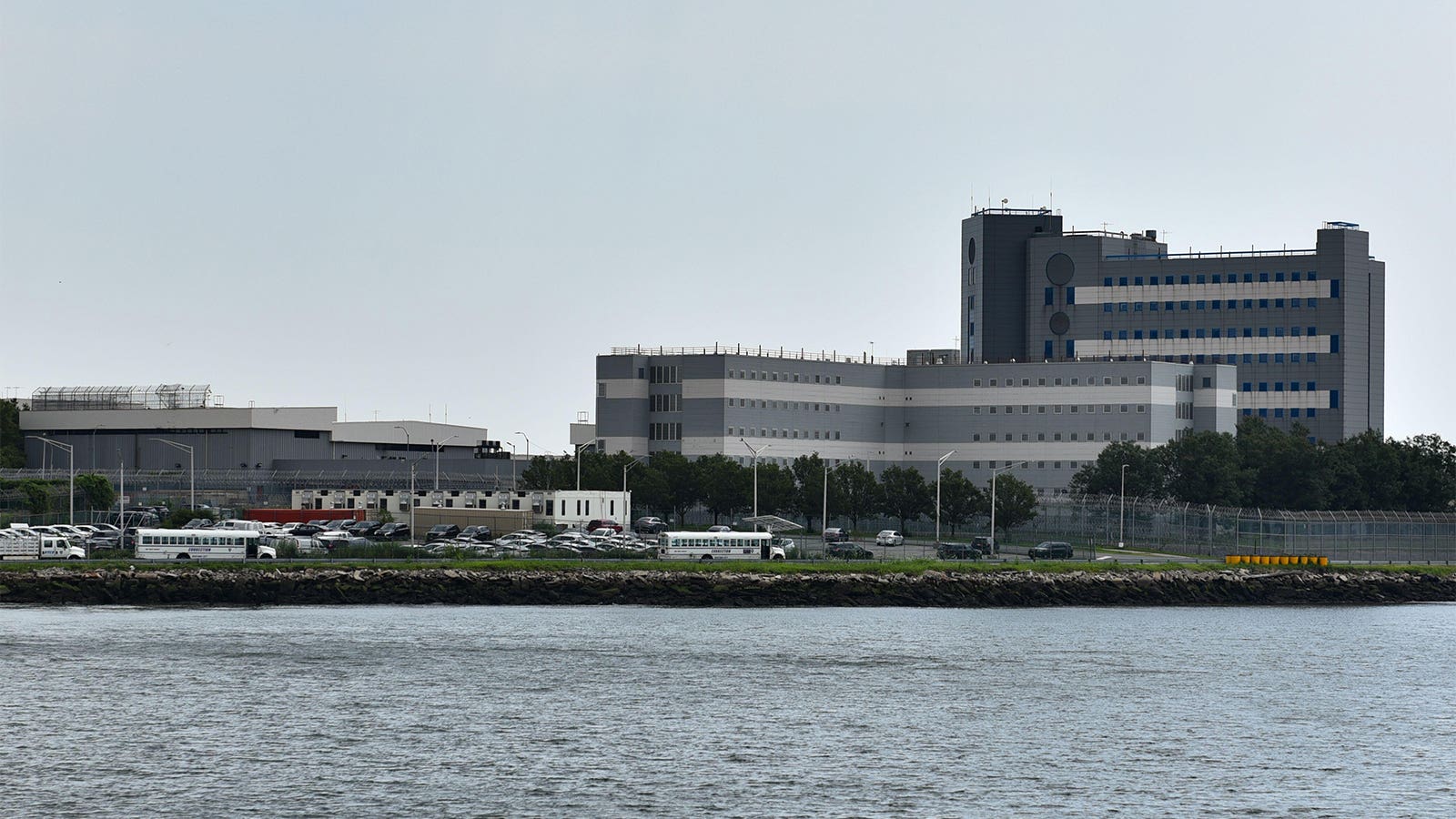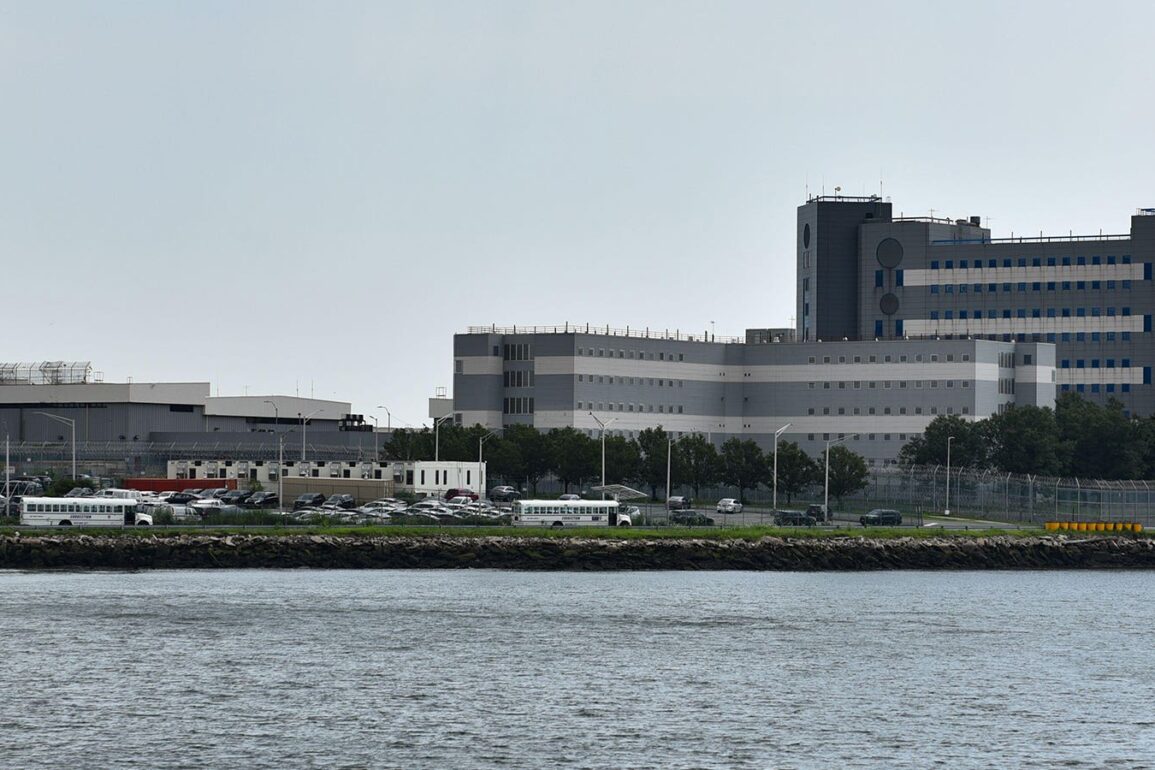
In early 2024, Mark Spencer, MD, co-authored an op-ed on the inadequate healthcare provided in jails and prisons nationwide, as well as the mistreatment of ill incarcerated individuals, even after they arrive in the hospital. As part of our review of the past year’s major events, we asked Spencer: How do you feel about this issue getting a flood of national media attention now that Harvey Weinstein has filed a lawsuit alleging substandard medical treatment at Rikers Island? Spencer’s response emphasizes the systemic issues with access to care for incarcerated individuals and the need for change.
On Monday, December 2, the disgraced former media mogul Harvey Weinstein was moved from Rikers Island and hospitalized in New York City after a reportedly “alarming blood test.” This comes on the heels of the 72-year-old Weinstein’s legal team bringing litigation claiming substandard medical care while he has been incarcerated. Weinstein was serving a 23-year sentence at Mohawk Correctional Facility in upstate New York before his 2020 convictions for alleged sexual assault and rape were overturned on appeal. Since spring 2024, he has been held in Rikers.
Many lack sympathy for Weinstein’s healthcare woes, given his reputation and persistent denial of wrongdoing. But the alleged substandard medical care is not what’s notable here — it’s the fact that it’s rarely inflicted upon someone rich or powerful like Weinstein. Overwhelmingly, those made to suffer from lack of care are marginalized individuals whose path to incarceration is often linked to profound governmental neglect. A scarcity of resources, opportunity, and care infrastructure too often define their pre-incarceration lives.
For us, as individuals who work at the intersection of the health and legal systems, it is somewhat frustrating that Weinstein’s legal complaint has garnered so much media attention. For an average individual detained on Rikers, or in any of the thousands of local jails around the country, it takes a particularly shocking injustice to be deemed media worthy. That being said, national attention is welcome as much of the harm done in carceral spaces is enabled by an overwhelming lack of transparency.
It is worth examining in more detail the indignities that hundreds of thousands of people are made to endure in jails across the country.
Weinstein Versus the ‘Typical’ Prisoner
As a jail complex, Rikers Island is primarily a pre-trial detention facility. Like other jails in America it serves as incarceration’s “front door.” In jails nationally, three out of five people have not been convicted of any crime, often too poor to post bail, and 75% have nonviolent charges. Racial disparities are a defining feature. Most come from historically neglected communities and suffer extreme economic marginalization, with the median pre-arrest income near $15,000. In part, this is explained by the long-term underfunding of social services and simultaneous rise in police and jail budgets. Too often, jail is the only public institution on offer.
Those incarcerated in local jails are much more likely to suffer from mental illness, substance use, chronic diseases, and housing insecurity. Few have the money, means, or legal support to bring suits similar to Weinstein. While Rikers has a particularly egregious human rights record, it is far from exceptional when it comes to the conditions of confinement in America today. From Philadelphia to Baltimore, Fort Wayne to Phoenix, Los Angeles to Atlanta, over 5.6 million unique individuals are booked in a jail annually, with profound and far reaching effects.
Structural Barriers to Care in Jails
U.S. carceral institutions are empirically premature death-producing institutions. Jails, where time in custody is meant to be short, are ill equipped for long-term programming, including medical care. It only takes one day for the negative impacts of incarceration to be felt. Ultimately 41% of all jail deaths occur within the first week of detention.
What Weinstein and his attorneys are learning has long been known to incarcerated people and their families: care rarely happens in a cage. Jails too often fail to meet medical standards for even common chronic conditions. For those requiring expensive medications or stigmatized conditions such as opioid use disorder, the picture can be even worse. Without adequate medical and social services, many cycle from jail to emergency departments to the street at significant financial and human cost. As private contractors take over the majority of jail medical services, profit motive has contributed to a further deterioration in the quality of care. Some institutions even require payment to see a provider. There are still no mandatory standards governing healthcare access or delivery in carceral facilities, only a patchwork of voluntary accreditations that amount to nothing. In the end, most wind up twice harmed by public systems that seem indifferent whether they live or die.
At Rikers, despite not using private contractors and despite the best efforts of many providers at reform, hopes of progress are continuously overshadowed by the various structural conditions and culture that sees physical and mental health deteriorate. In the end, providers are faced with the bind of dual loyalty, to the security apparatus who run the jail and to their patients’ needs. Security preferences prevail. Across the country, both over-incarceration and simultaneous understaffing make the basic functions of many institutions unmanageable. This increases fear, anger, and desperation, all contributors to conflict and violence.
Perhaps nothing says how little value is assigned to an incarcerated person’s life than the government being unable to say how many people die in custody each year. Incredibly, all of this is despite a constitutional right to healthcare that is unique to incarcerated people.
Demanding Humane Treatment
Whether or not you care what happens in American carceral institutions, it is done using all of our tax dollars. An obsession with vengeance keeps us from building systems that can truly deliver on promises of safety and justice. You need not be concerned about Weinstein to see that the harm done to vulnerable and sick people in local jails, under the guise of public safety, serves no one well. Nearly every single person in jail will return home to their communities. To have experienced maltreatment, medical neglect, and additional trauma before returning home makes finding stability more difficult and the task of staying out of the legal system in the future that much harder.
We should not hold out hope that jails will become centers of healing, nor should we want care to depend on criminalization. We must, however, demand humane treatment of all. We should remain focused on reducing the number of people in our local jails, as overcrowding and an inability to maintain adequate staffing exacerbate many of the harms that occur. This can be accomplished through a combination of bail reform, ensuring people are not detained simply for being poor, and diversion, sending non-police response to most non-violent emergency calls.
In terms of improving carceral healthcare, external oversight is essential to increase transparency and ensure basic standards of care are met. We should seriously question the morality of private health contractors, and when possible, utilize public partnerships that do not have a profit incentive and can better facilitate linkage to care on release. Practices such as co-payments must end and guards should play no role in triaging care, which is too often the case today. Ultimately, a jail is not a social service provider, and we should reckon with the fact we spend an ever-growing amount on punishment, while many of our patients’ basics needs go unmet.
Mark Spencer, MD, is an internal medicine physician and assistant professor of medicine in Atlanta. His work focuses on the contribution of American policing and carceral systems to adverse health outcomes and health disparities. Janhavi Dubhashi, MPH, is a fourth-year medical student and future internal medicine/pediatrics physician.
This post was originally published on this site be sure to check out more of their content.









